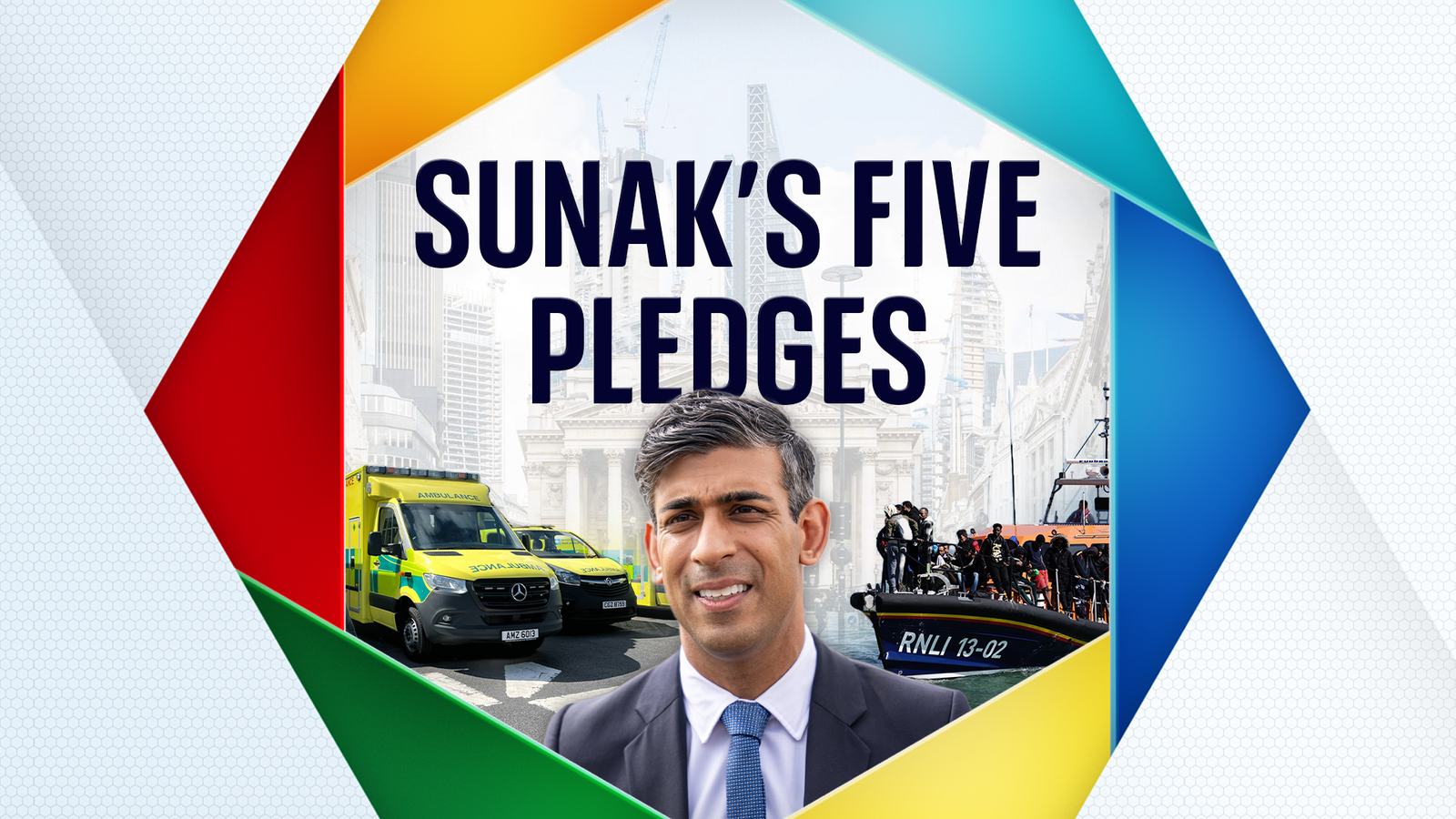Rishi Sunak pledge tracker: What progress is the PM making on his five goals?


Deputy political editor
Rishi Sunak announced his five pledges in January 2023 in order to show a decisive change of approach from the chaos of the Boris Johnson and Liz Truss premierships.
The pledges, overseen by campaign chief Isaac Levido, were designed to show the Conservatives could take action.
Tory strategists worried that changing prime minister twice in a year harms public trust and would mean people no longer believe Tory promises.
They drew up a list of pledges they hoped could be delivered before the election, allowing them then to have more credibility when making further promises in the manifesto.
It was never likely to prove that easy. At the time they were announced – 4 January 2023 – they were seen as a challenge but not excessively ambitious. The last nine months have changed that.
Now Sunak’s struggles on every front are a defining part of his premiership, and today Sky News’s pledge tracker shines a light on just how hard getting this done remains.
Some of the problems, however, rest with the way the pledges were drawn up. Three of the pledges – on inflation, GDP growth and ensuring falling national debt – were on the economy.
In fact, the high inflation environment means that these three have pulled policy in different directions. For instance, more public spending could help boost GDP, but that would jeopardise the effort to bring down the debt.
Bringing down inflation has meant the Bank of England raising interest rates – yet this automatically hurts growth.
Another of the pledges, to ensure the NHS waiting lists are falling, did not anticipate the impact of the public sector strikes hitting the health service – the clearest sign that the government misread the situation nine months ago.
All of this despite the best efforts of Downing Street to give themselves every bit of wiggle room to ensure maximum flexibility. Look at the tricks they deployed: there was no deadline given for the pledges other than inflation, which would halve “this year”. Most are not expected to be met in 2023.
Sunak has refused to put a figure on what exactly halving inflation looks like, meaning he has a slightly wider margin for error just above 5% than many realised.
The pledge on getting national debt falling is not what it sounds – the amount of government borrowing will not go down in absolute terms, only as a proportion of GDP – something the Spectator regularly takes aim at.
And the government has promised to “stop small boats” but made clear that does not mean there will be zero small boats crossing the channel, without defining how low a number they are targeting.
Even with these fudges, however, the pledges are proving hard, which is why today’s tracker is vital.
“They’re not the limit of my ambitions for our country. They’re the foundation,” Sunak said on the day he launched them.
Could the fact he is struggling to be delivered delay the moment the public pay attention to his promises for the future?